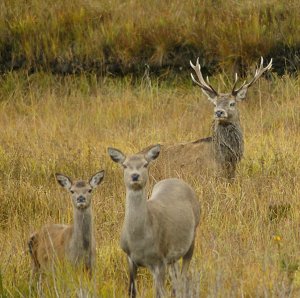"Certain Genes Are Favoured In Males and Not In Females"
27 Jun, 2007 07:00 pm
Researchers have found out that good genes can be gender-specific. The study is published in the June 28, 2007 issue of Nature. Interview with Katharina Foerster, lead author of the report.
 You have conducted a long term study of red deer. What did you observe?
You have conducted a long term study of red deer. What did you observe?We looked at the population of red deer in Ireland and Scotland. We know very well the pedigree of that population, that means the fathers and mothers and grand fathers and grand mothers of all the individuals of that kind of population. By looking at that pedigree, we found out that male red deer that are very successful in fathering offspring had actually female relatives which were not very successful. So this was the very surprising thing we found.
This is the main information that we found: successful males had daughters that were not so successful. Now there is one central theory, an evolutionary theory. That is the theory of the good genes: we found that good genes in a male, when they are passed on to female offspring, could not be good genes any more. And that is something which is very new.
Do you think it may apply to humans?
This is very difficult to say. The whole topic of how good certain genes are for males or for females is a very new one and we donít know much about it. Itís definitively difficult to transfer it to other species. Yet, the only information we have so far is from the tiny fruit fly that is called Drosophila and from the red deer. So itís a bit too early I think to make it apply to the humans.
What effects may it have on the selection and maintenance of genetic variation in natural populations?
What happens if certain genetic materials are good for males and not for females or the other way around ? And what happens if that selection is not directional any more as we thought it would be. Certain genes are favoured in males and not in females or the other way around. You would always expect in a natural population to see individuals with only good genes, because selection has favoured these good genes. But thatís actually not the case and you find genetic variability within a population of individuals. This effect that we found might be one of the reasons for that.
Interview by: Clementine Fullias
Katharina Foerster is a researcher at the University of Edinburgh






